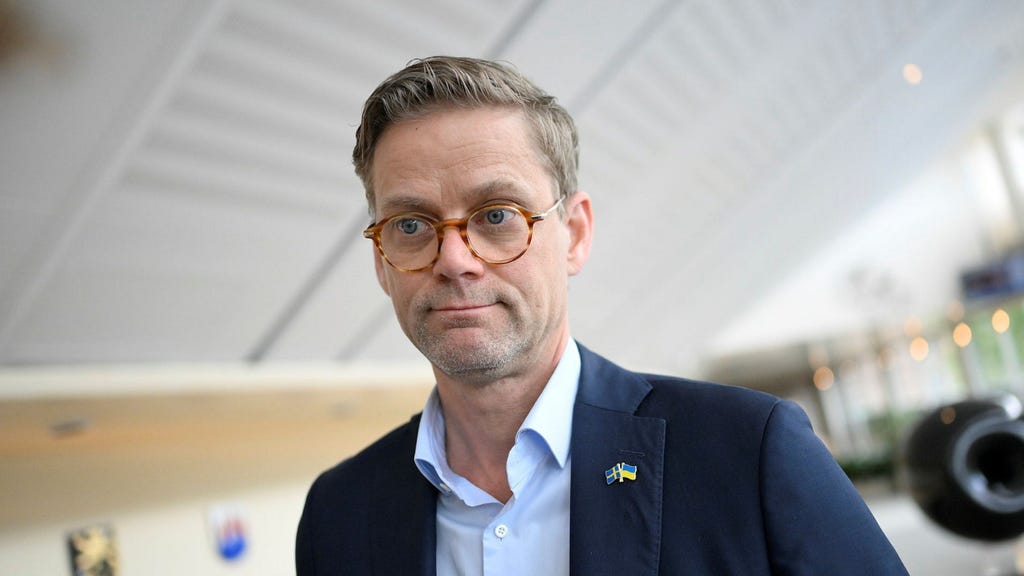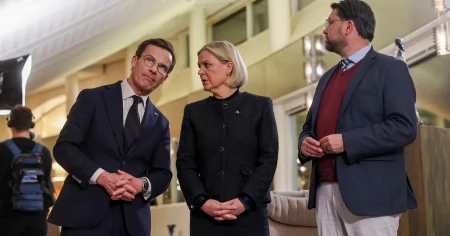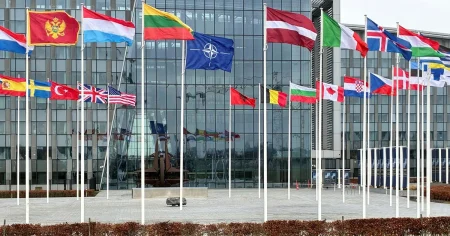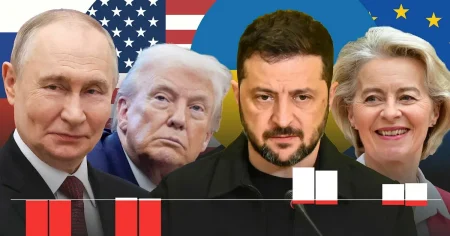The debate surrounding potential Swedish arms sales to Israel has ignited a political firestorm, exposing fissures within the ruling Tidö coalition. The controversy began with the Liberal Party (Liberalerna) and the Sweden Democrats (Sverigedemokraterna) expressing their support for lifting the decades-long ban on such exports. The Liberals, through their foreign policy spokesperson Joar Forssell, initially argued that Israel, as a democracy, possesses the right to defend itself and should therefore have access to Swedish weaponry. This stance aligns with the Sweden Democrats’ position, which emphasizes Israel’s role as a bulwark against Islamist terrorism and advocates for increased cooperation and trade with the ”only democracy in the Middle East.” This position underscores a broader shift in their foreign policy perspective, suggesting a willingness to engage with Israel on military matters.
However, the initial enthusiasm from the Liberals quickly waned following intense public scrutiny. The party retreated from its initial stance, clarifying that while they remain, in principle, supportive of arms exports to democratic nations, current circumstances do not warrant such sales to Israel. This backtracking highlights the sensitivity surrounding the issue and the potential political ramifications of supporting arms sales to a nation embroiled in complex geopolitical conflicts. The Liberal Party’s revised statement emphasizes the rigorous evaluation process involved in arms export decisions, highlighting the need to balance various interests and criteria before authorizing such sales.
This reversal leaves the Sweden Democrats isolated in their pro-arms sales stance within the governing coalition. The party insists on the importance of supporting Israel, arguing that increased trade and collaboration, including arms sales, would benefit Swedish defense interests. They cite the precedent set by Sweden’s military support for Ukraine, suggesting that similar considerations should apply to Israel. The Sweden Democrats’ position reflects a more hawkish foreign policy approach and a willingness to engage in military partnerships with countries facing security threats. They see Israel as a strategic ally in the fight against terrorism and advocate for a closer defense relationship.
In contrast, the Moderate Party (Moderaterna) and the Christian Democrats (Kristdemokraterna), the other two members of the Tidö coalition, have explicitly rejected the idea of selling arms to Israel. Foreign Minister Maria Malmer Stenergard of the Moderates reiterated Sweden’s long-standing restrictive policy on arms exports to Israel, emphasizing that no such permits have been granted since the 1950s. While acknowledging the existence of follow-up deliveries for non-military equipment purchased before the ban, Stenergard’s statement underscores the government’s cautious approach to this sensitive issue.
Similarly, the Christian Democrats’ foreign policy spokesperson, Magnus Berntsson, dismissed the debate as hypothetical, pointing out that no formal requests for arms purchases have been received from Israel. He emphasized that any such requests would be thoroughly evaluated by the Export Control Council, adhering to established regulations and procedures. This cautious approach underscores the Christian Democrats’ commitment to a responsible arms export policy and their reluctance to engage in sales that could potentially exacerbate regional conflicts.
This internal division within the ruling coalition highlights the complexities and sensitivities surrounding arms exports to Israel. The debate touches upon fundamental foreign policy principles, including support for democracies, national security interests, and the ethical implications of arms sales to regions experiencing ongoing conflict. The contrasting positions of the coalition partners underscore the challenges of maintaining a unified front on sensitive foreign policy issues and the potential for such disagreements to strain inter-party relations. The issue also reflects the wider international debate on arms sales and the responsibility of supplier nations to consider the potential consequences of their decisions. The ongoing discussion within Sweden serves as a microcosm of the broader global discourse on arms control and the delicate balance between national security interests and ethical considerations.














